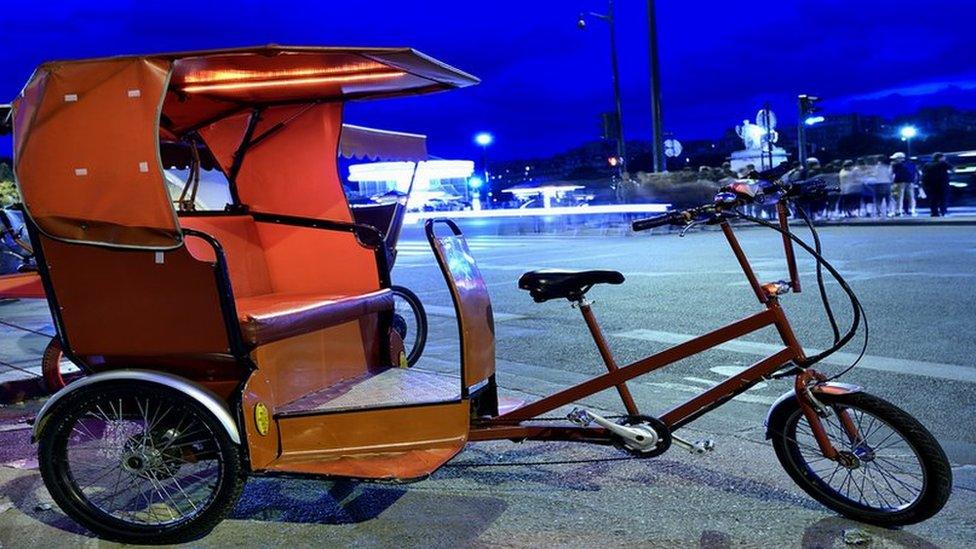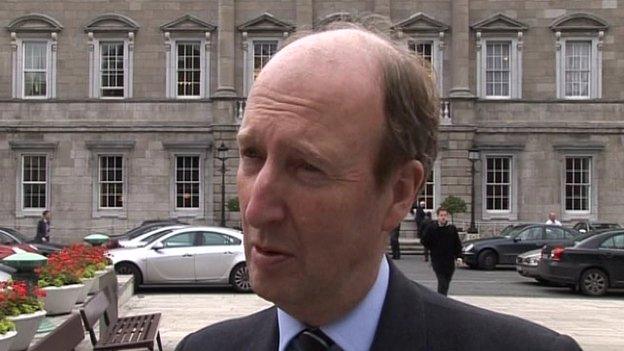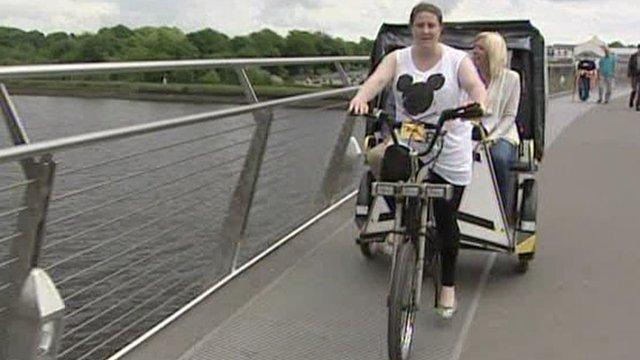Irish plan to ban rickshaws over safety concerns
- Published

Rickshaws are popular modes of transport in many major cities around the world
Irish Transport Minister Shane Ross has proposed a ban on rickshaws following a number of safety concerns.
He was before the Oireachtas (Irish parliament) transport committee to discuss regulation of rickshaws.
The passenger carts have become popular modes of transport in the Republic, but a recent survey found that only 8.3% of respondents believed rickshaw operation should remain the same.
Mr Ross will now consult with the attorney general about an outright ban.
"I have deep concerns about public safety with rickshaws on our streets," said Mr Ross.

Shane Ross said many rickshaw drivers were too dangerous for the roads
"We have all seen them - blocking footpaths and forcing pedestrians onto the road, weaving recklessly in and out of traffic."
He said those operating the rickshaws often showed "little or no heed for the rules of the road, breaking red lights and driving the wrong way up a one-way street".
Near misses
In a public inquiry conducted by the National Transport Association, a wide range of issues were reported by those surveyed, including being offered drugs, the driver's lack of English and aggressive behaviour. 57.5% complained of accidents and near misses.
Mr Ross said that while many in the rickshaw industry have no involvement in criminality, "it is a fact that over the past 18 months, 154 rickshaw drivers have been arrested in relation to Section 15 Misuse of Drugs Act - possession of a controlled drug for sale or supply - while operating as a rickshaw driver in the Pearse Street District alone. This is not acceptable."
Outright ban
Of the 95 submissions received, only two responses were positive, with one praising them for being environmentally friendly. 41 people called on an outright ban of rickshaws.
The majority of all respondents stated that changes to rickshaw usage in the Republic should be made.
"It is clear to me that the choice is between a full and effective licensing regime and complete prohibition," said Mr Ross.
"Retaining the status quo is not an option.
"Regulation could be effective if implemented using comprehensive and tight controls, but this would come at a large cost.
"Given the very small proportion of the market being served by rickshaws, the preferred approach is to opt for an outright ban. It is believed it will achieve the desired outcome of improved public safety at a proportionate cost for the taxpayer."
- Published4 June 2013

- Published27 August 2011